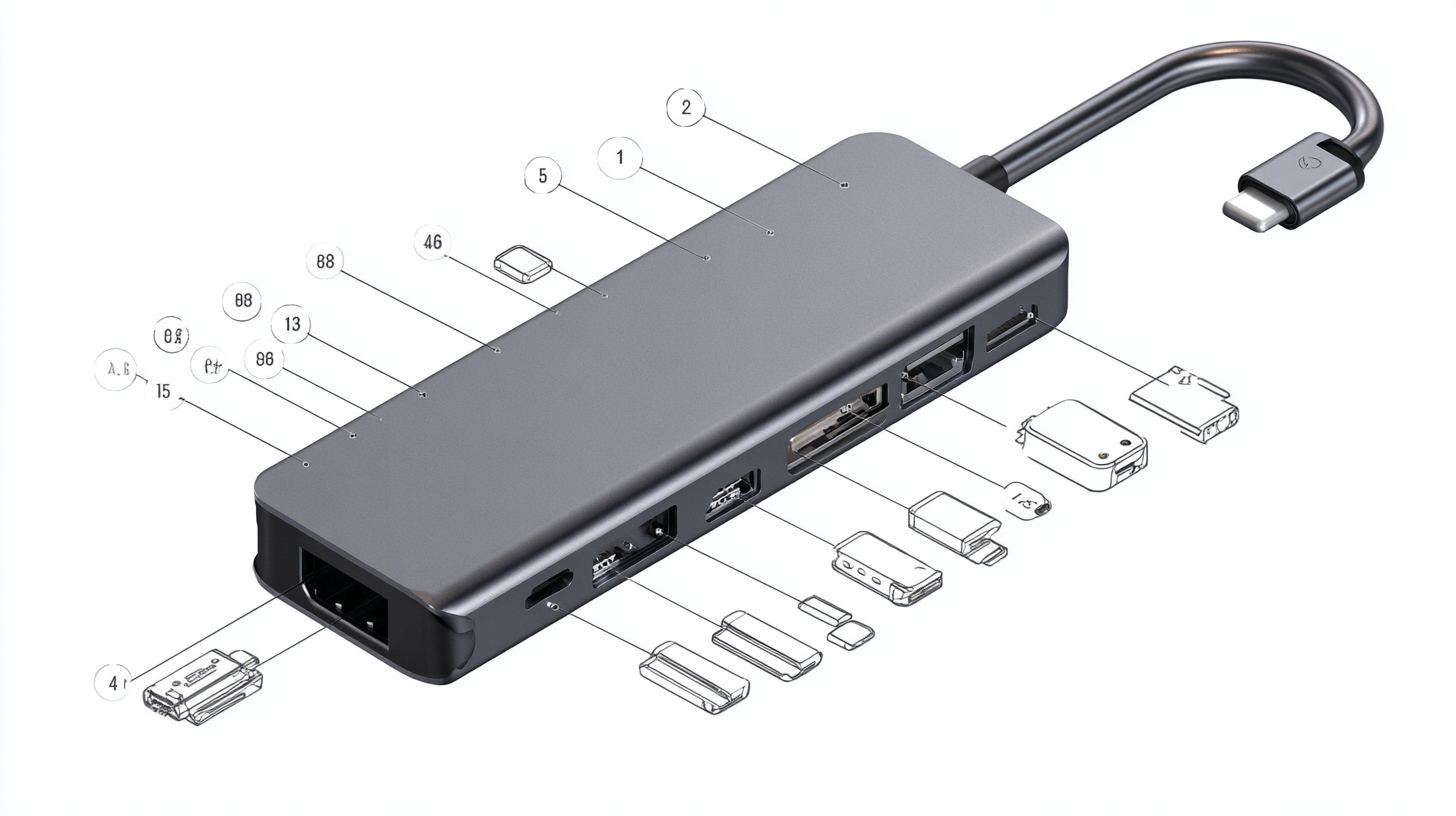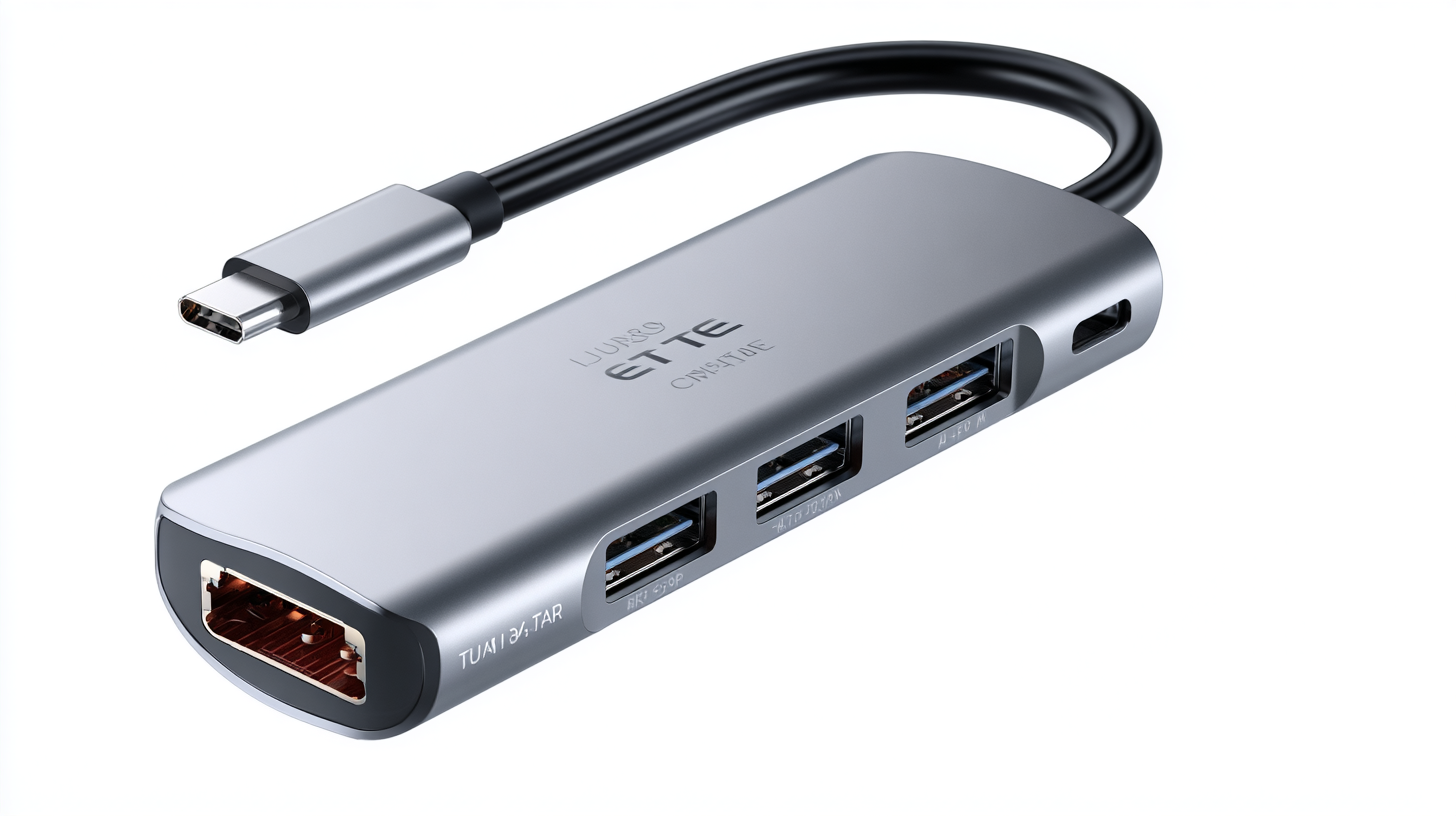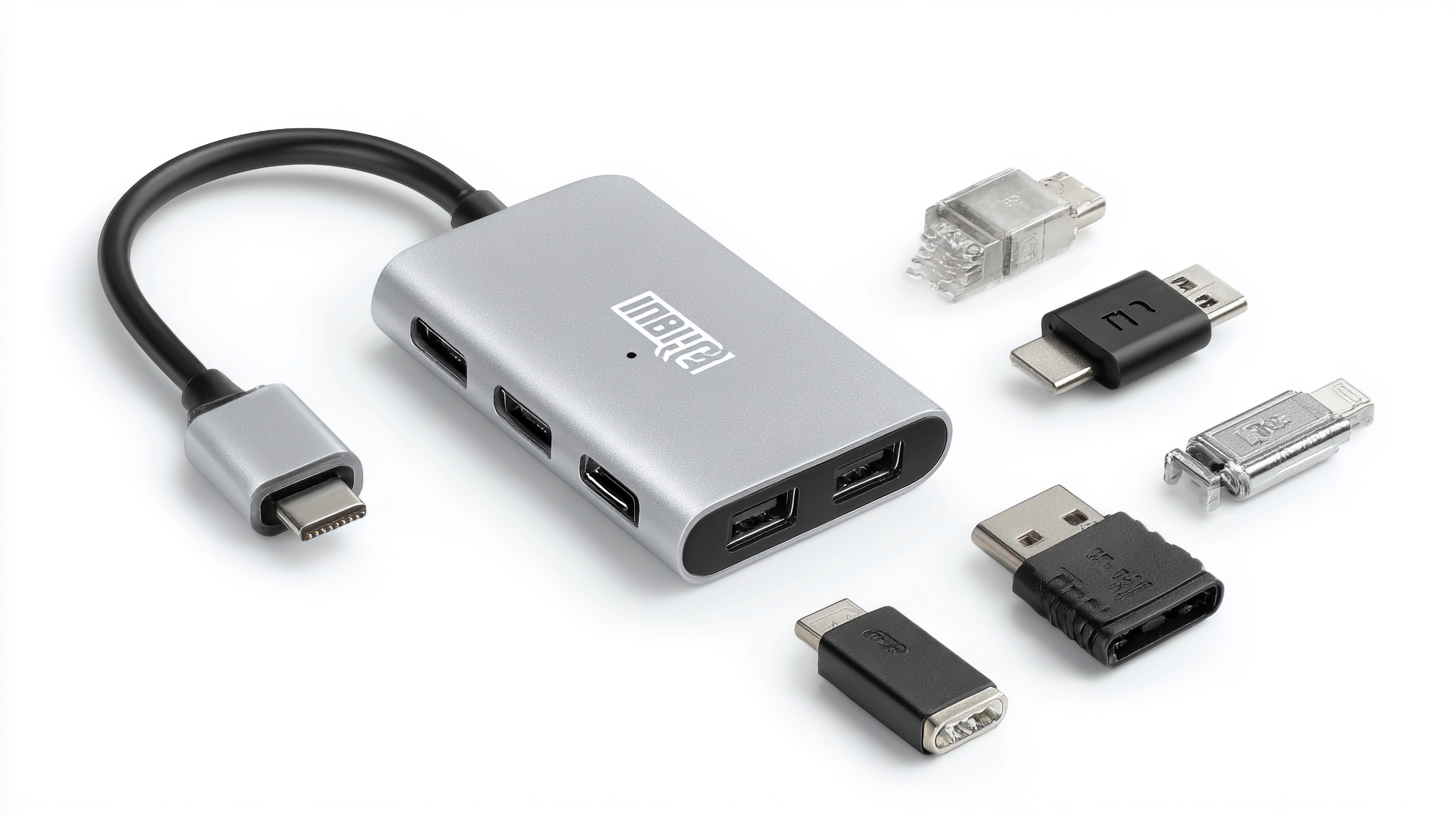
-
Home
-
Products
-
About Us
-
OEM&ODM
-
News
-
Contact Us
Inquiry
Form loading...

As the demand for high-quality electronic accessories surges globally, the USB Type C Multi Port Adapter has emerged as a critical component in facilitating seamless connectivity and versatility in our increasingly digital lives. According to a report by Market Research Future, the global USB Type C adapter market is projected to reach $4.5 billion by 2026, driven by the rapid adoption of USB Type C technology across various electronic devices. This emphasizes the necessity for consumers and retailers alike to navigate the complexities of global trade with an understanding of certification essentials. Sourcing from reputable Chinese manufacturers, known for delivering superior products, can significantly enhance the quality and reliability of USB Type C Multi Port Adapters, ensuring compliance with international standards and customer expectations.

In this blog, we will explore the key factors to consider when sourcing these adapters, ensuring that stakeholders are well-equipped to make informed decisions in this dynamic market.
When sourcing tech products like USB Type C multi-port adapters, certification plays a pivotal role in global trade. Certifications ensure that products meet specific safety, performance, and environmental standards, making them reliable choices for consumers. In the fast-evolving tech landscape, having certified products can significantly impact marketability and consumer trust, giving sellers a competitive edge.
Tip 1: Always verify third-party certifications and standards relevant to your target market. Certifications such as CE, FCC, and RoHS can indicate compliance with essential regulations, ensuring you choose high-quality products that enhance safety and reliability.
Tip 2: Stay informed about regional certification requirements. Different countries may have unique standards that need to be met for tech products. Understanding these regulations can streamline the import process and prevent costly recalls or compliance issues.
In a world where consumers are increasingly conscious of product quality, certification is not just an optional aspect of sourcing; it is an essential step towards success in global trade.
When sourcing USB Type-C multi-port adapters, understanding the critical certifications can significantly enhance product reliability and safety. Key certifications such as USB-IF (USB Implementers Forum) approval ensure that the adapter meets stringent performance and compatibility standards. According to a recent market analysis by Mordor Intelligence, the global market for USB Type-C adapters is expected to grow at a CAGR of 25.4% from 2021 to 2026, highlighting the increasing demand for certified products that ensure seamless connectivity across devices.
Moreover, certifications like CE (Conformité Européenne) and RoHS (Restriction of Hazardous Substances) demonstrate compliance with health, safety, and environmental legislation in Europe. A report from ResearchAndMarkets indicates that consumer preferences are shifting towards eco-friendly and safe electronics, making these certifications vital for manufacturers seeking to capture market share. By prioritizing sourcing adapters with these key certifications, businesses can not only guarantee quality performance but also align with growing consumer expectations for sustainability and safety in technology products.

When sourcing USB Type C multi-port adapters, evaluating Chinese manufacturers is crucial to ensure product quality and compliance with international standards. Many Chinese manufacturers have adopted rigorous quality control processes, but it's essential for buyers to conduct thorough research and inspections. Look for manufacturers who have certifications such as ISO 9001, which indicates their commitment to quality management systems and processes.
Tip: Always request documentation of a manufacturer’s certifications and quality assurance procedures. This can include test reports from recognized labs, production quality checks, and materials sourcing transparency. By demanding these documents upfront, you can filter out less reliable vendors.
Additionally, consider the manufacturer's engagement in compliance with international standards such as CE, RoHS, and FCC. These certifications demonstrate a commitment to safety and environmental responsibility, which are vital in today’s global market.
Tip: Visit trade shows or industry expos in China to meet manufacturers face-to-face. This provides an opportunity to conduct preliminary assessments of their production capabilities and quality standards, making informed decisions easier. Engaging directly often reveals more about a company's operations than documentation alone can provide.
When navigating global trade, particularly in sourcing USB Type-C multi-port adapters, the importance of verifying certification authenticity cannot be overstated. Businesses must focus on obtaining products that meet regulatory standards, ensuring that their selection not only aligns with technical specifications but also adheres to safety and environmental certifications. Recent moves by industry players towards more transparent certification processes reinforce this, as partnerships and technologies aim to enhance traceability in supply chains.
For instance, advancements in blockchain technology are paving the way for the issuance of verifiable green certificates, streamlining the procurement of sustainably certified products. This shift aligns with the growing emphasis on authenticity, as markets demand rigorous verification of claims made by manufacturers. Additionally, platforms that facilitate brand certification are emerging to protect consumers and businesses alike, allowing for more reliable assessments of product authenticity. In this landscape, sourcing professionals must prioritize due diligence, ensuring that their supply chains are fortified against fraud while also supporting environmentally responsible practices.

When navigating the complexities of trade regulations, particularly when importing tech accessories from China, it is essential to stay informed about tariff structures and exemptions. Recently, significant changes have come to light with the U.S. government exempting certain electronic products, including smartphones and computers, from the hefty 125% tariffs imposed on Chinese imports. This move is viewed as a potential game changer for businesses looking to source technology efficiently and cost-effectively.
To put your business in a favorable position, consider these tips. First, research and understand which products are exempt from tariffs. This knowledge can lead to substantial cost savings, enabling you to compete more effectively in the market. Second, establish relationships with reliable suppliers who are compliant with both U.S. regulations and quality standards. Lastly, ensure that your products have appropriate certifications to facilitate smoother customs clearance, helping avoid delays and additional costs related to regulatory issues. By taking these steps, you can navigate the import process with greater confidence.
| Certification | Description | Importance | Country of Requirement |
|---|---|---|---|
| CE | Conformity European (CE) marking indicates compliance with EU safety, health, and environmental protection standards. | Mandatory for selling in the European market. | European Union |
| FCC | Federal Communications Commission (FCC) compliance certifies that the electronic device does not generate harmful interference. | Required for market access in the United States. | United States |
| RoHS | Restriction of Hazardous Substances (RoHS) compliance restricts the use of specific hazardous materials found in electrical products. | Essential for environmental and consumer safety. | European Union, China, and many other countries |
| UL | Underwriters Laboratories (UL) certification ensures that products have been tested for safety risks. | Enhances product credibility and safety image. | Primarily United States and Canada |
| CB | The IECEE CB scheme facilitates the international acceptance of test reports and certificates for electrical products. | Streamlines the certification process for multiple markets. | Global |